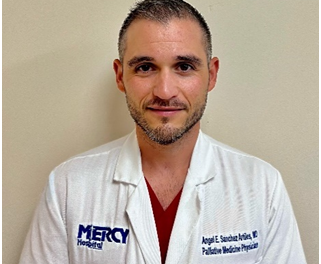One of the highest expenses for a medical practice is the rent it pays for its office space. With the assistance of a Commercial Tenant Representative, a physician can negotiate the most cost-effective and flexible lease. A Tenant Representative solely represents the tenant (physician) with the leasing or purchasing of commercial real estate. It is wise for a physician to consult with and outsource their real estate needs to a professional who works in the industry every day and knows the market.
In order to make prudent real estate decisions, a physician should evaluate their current and long term business and professional needs. As much as physicians dislike the process of relocating their office, sometimes it becomes necessary to do so. Whether a doctors practice is growing, expanding to a second location, or seeking to take advantage of todays tenant-friendly market conditions by renegotiating their lease, the first thing the physician should do is consult a Tenant Representative. A physicians profession is to take care of and treat patients. A Tenant Representatives business is to take care of the office needs of the physician and their medical practice. Since physicians are not experts in real estate, they should outsource the process to a professional. Whether a physician is seeking to relocate, renegotiate, or renew their medical office lease, a Tenant Representative can facilitate the process so the physicians practice is not disrupted. Obtaining a Tenant Representative to assist in lease negotiations can save the physician valuable time, and improve the overall efficiency and profitability of the physicians practice. Our company, Howard Ecker + Company, represents tenants exclusively, and therefore we avoid conflicts of interest since we never represent landlords. We also specialize in the needs of physicians and provide a turn-key approach to medical office leasing with a cost guarantee. We do this by partnering with architecture firms and construction project managers, all of whom specialize in medical office space. As Tenant Representatives, we negotiate the best business terms of the lease and have an attorney handle the legal terms of the lease, after the architect has designed the space and the contractor has delivered a budget for the construction based on the physicians specifications. One challenge a medical practice faces is maximizing the operational efficiency of their medical office space. Often, opportunities for medical practices to grow, evolve, and change are hindered due to the restrictions placed upon them by their office lease. With the guidance of a Tenant Representative, a physician can expertly negotiate options in their leases to account for expansion, consolidation, or relocation. Physicians should not negotiate their own leases. When a physician uses a Tenant Representative, the physician does not pay the Tenant Representative out of his or her pocket. The physician has an advocate, and the commission is split with the landlord broker. Thus, it is a misconception to believe that a physician is saving money by not using a Tenant Representative. When a physician negotiates directly with a landlord broker, the landlord broker receives a full commission. Since the landlord broker has a fiduciary responsibility to represent the landlord, the broker will negotiate vigorously on the landlords behalf. Moreover, the landlord is in the real estate business, negotiating leases every day, while the physician typically makes real estate decisions and negotiates leases only once every ten years. This makes for an uneven playing field. Using a Tenant Representative evens the field. There is no down-side or additional cost to use a Tenant Representative! A physician can save tremendous amounts of time, money and stress by outsourcing the real estate process and office search to a Tenant Representative. We at Howard Ecker + Company are an experienced Tenant Representation company that can handle any medical practice or physician’s requirements.

























